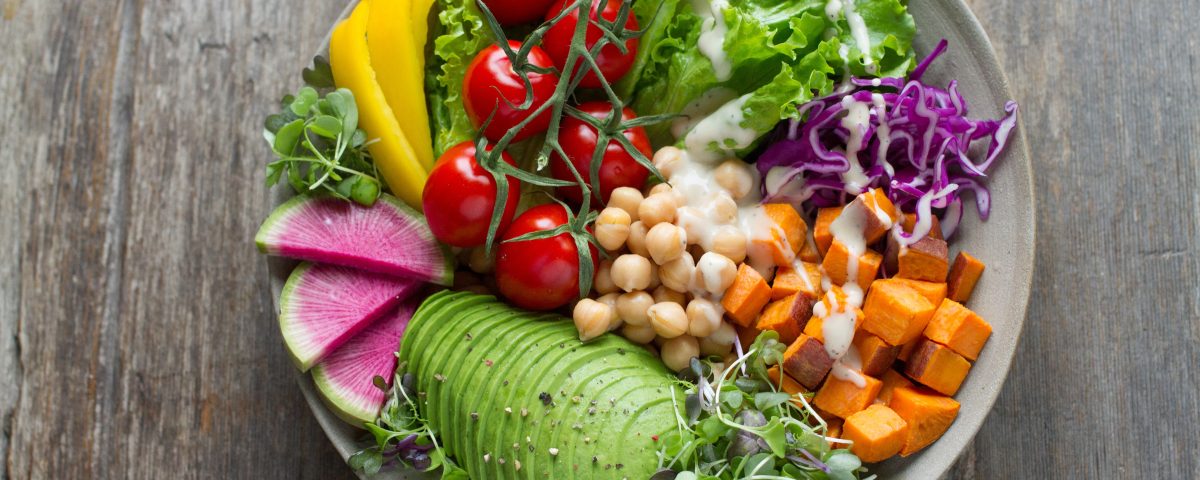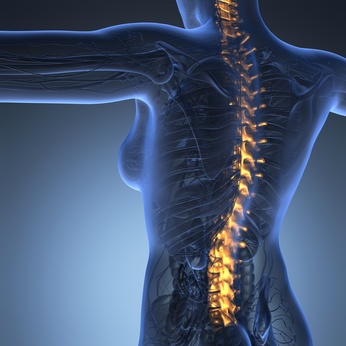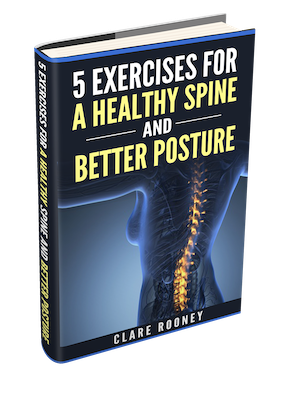The Vegan Dilemma

The Many Forms and Effects of Postural Dysfunction
February 1, 2019Plant based diets have become hugely popular in recent years . In todays blog I wish to look at purely plant based diets ie the Vegan diet and assess the pros and cons of this nutritional approach. In doing so I hope to assist the reader to make a more informed appraisal as to whether this would be the best option for their overall health.
Vegan diet Pros:
1: Rich in plants and fungi this diet is very high fiber. Fiber can be a great aid to support satiety , regulate blood sugar more effectively, reduce incidence of constipation (in some cases not all!) and help the body in the process of detoxification.
2: If well designed this diet can be rich phytonutrients ( 25,000 have been estimated to date). Phytonutrients are plant chemicals that can have a host of healing effects. Think of lycopene which gives plants their rich red colour. This has been shown to help the prostate gland. Think lutein, a yellow pigment which assists eye health. The purple bluey colour of your blueberries is due to many phytochemicals including anthocyanins and resveratrol. Resveratrol has been connected to longevity and the anthocyanins connected to an anti neuro inflammatory effects thereby supporting brain and nervous system health. Indoles and glucosinolates are other phytochemicals that can help lower your cancer risk.
3: In many cases you are eating these vegetables not necessarily for their nutrient or phytochemical content but to feed your gut microbiome. In this life it has been said that we start off 99% human 1% bacterium but we end up being 99% bacterium and 1 % human! Vegetable matter constitutes what is known as prebiotics. Your gut bacteria feed on these prebiotics and produce post biotics. Postbiotics have been shown to boost the immune system, support those with poor gut health (think irritable bowel, Crohn’s disease) via the production of short chain fatty acids (an example of a postbiotic) and they may even aid weight loss by modulating satiety signalling.
4: Fruits and vegetables can support detoxification via their fibre content, their source of anti-oxidants to quench free radical reactions and their unique phytochemicals e.g., cilantro has been shown to remove certain neurotoxins like heavy metals.
5: A plant rich diet can help lower LDL cholesterol which has a link with cardiovascular disease. Plants that contain a good amount of soluble fibre can bind to cholesterol so excess can be excreted through the bowel. Gut bacteria eating this fibre is also thought to be part of the cholesterol lowering mechanism. Good sources of soluble fibre include oats, apples, avocados and beans. There are studies showing that all of these foods reduce cholesterol. Psyllium fibre has been shown to reduce LDL by up to 24%.
5: Phytochemicals are now theorised to modulate gene expression due to their ability to effect methylation of our epigenome. Epigenitics is like a library of coding that operates above the genes themselves thereby modulating the expression of those genes. E.g., you may have a gene for breast cancer but because your methylation pathways are being tweaked via the foods you eat your body never gets to express this disease. Methylation is a reaction that occurs a billion times a second in the human body! Optimising methylation, not too much, not too little has a lot to do with reducing risk factors for disease and promoting longevity. Dr Kara Fitzgerald is a researcher in this field of genetics, epigenetics, methylation pathways and longevity. She has described certain foods like the ones rich in phytochemicals for example as gene whisperers.
Vegan diet cons:
Like all things in this reality there is no top without a bottom, no night without day no coin with only one side. While the many benefits of a plant rich diet seem clear it’s now time to look at their downsides.
1: Eating exclusively a vegan diet can and does lead to a host of nutritional deficiencies most notably:
Vitamin A: needed for hormone production, eye and skin health and immune function. The best sources are cod liver oil, liver and egg yolks. The body absorbs 75 to 100% of this vitamin A whereby a plant-based source coming from the conversion of beta carotene is at best 10-30% absorbable. If you have a genetic polymorphism that makes this conversion poor you may have dangerously low levels.
Vitamin D: Contained in at least 37 different tissues of the human body this vitamin (or more correctly pro hormone) is needed for every possible function you can imagine including a protection against depression. The best food sources are cod liver oil and oily fish, egg yolks and shellfish. Mushrooms are the only real source of vitamin D for the vegan, however it’s in the form D2 but the body requires the D3 form. Conversion rates can be poor.
Vitamin K2: This is another fat-soluble vitamin required for many functions in the human body most notably getting calcium into the right places (bones, teeth) and out of the wrong places (think arterial plaque). While there is an excellent source of Plant based K2 called Natto, a Japanese fermented food, this may not be so readily available in the West and it is most certainly an acquired taste. Readily available animal food sources include chicken liver and many cheeses most notably Munster, Camembert and Roquefort.
Vitamin B12: This vitamin is needed for red blood cell production and critical for mental health. Lack of vitamin B12 may cause anger issues, paranoia, obsessive compulsive disorder and dementia. B12 is only found abundantly in animal foods. There are very limited amounts in plant foods like nori and shitake mushrooms. Nutritional yeast has been touted as a great source of B12 but in its unadulterated form it contains none. The nutritional yeast must be fortified before containing any B12. That means B12 has to be added to it.
Vitamin B6: This vitamin plays a role in over 100 metabolic reactions. It helps to make anti bodies, supports nerve health, helps protein metabolism, makes haemoglobin (the oxygen carrying component of red blood cells) and helps to optimise our blood sugar regulation. The best sources are once again animal based (dairy, salmon, liver, eggs, beef). The bioavailability of B6 from plant-based foods depends on a multitude of factors:
“Diets that restrict meat, seafood, poultry, dairy or eggs, or diets that largely rely on improperly prepared grains, legumes and nuts that are high in mineral-binding phytates present a three-fold problem: they are low in riboflavin, low in bioavailable zinc, and they contain vitamin B6 mainly in a form that is more difficult for the body to absorb and utilize.” (Gropper SS, Smith JL, Groff JL. Advanced Nutrition and Human Metabolism. 4th ed. Belmont, CA: Thompson Wadsworth; 2005)
“Vitamin B6 absorption from plant-based foods may be reduced up to 75-80% when compared to a form of vitamin B6 found in animal products.” (Reynolds, R D. “Bioavailability of vitamin B-6 from plant foods.” The American journal of clinical nutrition vol. 48,3 Suppl (1988): 863-7. doi:10.1093/ajcn/48.3.863)
Zinc: This is a mineral involved in several hundred enzymatic reactions. It plays key roles in hormone production, cell regulation, gene expression, nervous system health, reproductive health, immune health, skin health, digestive health, sense of taste and smell and much more. The most bioavailable sources of zinc (the ones your body can actually absorb) are from animal foods, oysters, other shellfish and beef being some of the top sources. Many plant-based zinc sources also contain a class of compounds called phytates. These phytates inhibit zinc absorption so much that one may need to double their zinc intake if it is from plant-based sources.
Iron: This is needed to make your red blood cells and the oxygen carrying component of these cells. It also affects immunity. It’s also a component of myoglobin which supports muscle metabolism and healthy connective tissue. Iron is also necessary for physical growth, neurological development, cellular functioning, and synthesis of some hormones. There are two sources of iron heme and non-heme. Heme iron from animal sources is much more readily absorbed than non-heme sources. Your ferritin status is monitored in your blood as the best indicator of your iron levels. In one study serum ferritin concentrations of vegetarians and vegan were barely half that of omnivores in spite of dietary intakes of plant-based iron that were up to 49% higher than omnivores. ( Eur J Clin Nutr 1999 Mar;53(3):189-94). Your best sources of iron are liver and red meat.
Calcium: This is the most abundant mineral in the body making up the structural components of bones and teeth. It mediates blood vessel contraction and dilation, muscle function, blood clotting, nerve transmission, and hormonal secretion. 42g of cheddar cheese gives 303mg of calcium to get the equivalent calcium that’s actually absorbed from spinach you would need 16 servings of 85grams (1.36kg of spinach!). To hit your target with sweet potatoes you need 9.8 servings of 164grams (1.6 kg of sweet potatoes) (The American Journal of Clinical Nutrition, Volume 70, Issue 3, September 1999). Let’s look at the calorie equivalent 42g of cheddar cheese is 169 calories, 1.6kg of sweet potato is 1439 calories! So, from a practical perspective the sheer volume of plant foods one needs to consume becomes impractical.
EPA and DHA: These are essential fatty acids that the body cannot synthesise on its own. In theory the body can convert ALA (a plant based fatty acid) into EPA and DHA the form the body actually requires but in practice this conversion process is very poor and hampered even further if you have poor metabolic health (that’s 88% of the population at present). For more detail on this topic please read my blog: Know your essential fats. The best sources of EPA and DHA are fatty fish, a quality fish oil supplement and wild meat.
Choline: Choline is a nutrient that’s also required by the human body for a healthy brain and nervous system and to optimise movement and metabolism. It is required for the formation of your cell membranes and helps make an important neurotransmitter, acetyl-choline, which is important for memory and focus. A 2019 study from the BMJ of Nutrition Prevention and Health cautions against a move away from animal foods as these are our richest sources of Choline:
“Eggs, milk and meat appear to be major dietary providers and further movements away from the consumption of these could have unintended consequences for choline intake/status”
2: Getting adequate protein:
To get adequate protein we need all of the essential amino acids and an appropriate quantity of them. Many plant based sources are missing one or more essential amino acids and are thereby deemed incomplete. This means foods have to be carefully combined to arrive at a complete profile of essential amino acids. This takes a lot of planning with your diet to make sure you cover your basic needs. Then there is the question of protein equivalance. This takes into account amino acid content and digestibility and absorption rates of those amino acids and especialy the Leucine content a minimum threshold of which is required to stimulate an anabolic response in the body. According to Dr Gabrielle Lyon, muscle centric medicine specialist, you would have to eat 6 cups of quinoa to equate to one chicken breast (150g) for protein content. If this is the case one would have to consume an inordinate number of calories on a vegan diet just to hit one’s protein requirements. Then there is the added conundrum that we require even more protein as we age. Once you are over 40 your protein requirements increase significantly due to what is termed “anabolic resistance”. Simply put we need more protein and strength training to stimulate muscle protein synthesis.
3: Muscle Mass and Lifespan
One of the main reasons people are drawn to change their diets is to improve health and longevity. Early research from Tufts university showed that the top two predictors of living a long life are: 1: How much lean body mass you have (muscle, bone density, internal organs, connective tissue), 2: How strong you are. The experts at building muscles are of course body builders. To my knowledge there has been no Mr Olympia that was a vegan. Surely if a vegan diet was the best for supporting lean body mass, then every world class body builder would be vegan. I am not saying vegans can’t build muscle, they sure can if they supplement their diets sufficiently but it does not seem the best way. A study from the journal of Cell physiology seems to concur:
“We enrolled three groups of healthy men (omnivores, vegetarians, and vegans) with similar age, weight and BMI, and we observed a significant decrease in muscle mass index and lean body mass in vegan compared to vegetarian and omnivore”
How does a vegan diet affect strength? The late Charles Poliquin over several decades as a strength coach at the most elite levels said he never saw a switch to a vegan diet improve performance in an athlete.
4: Other supportive amino acids
Non-essential amino acids are ones the body can make for itself in theory. But if we are ill and stressed (and let’s face it who is not stressed in the modern world?!) we may have difficulty in meeting our requirements of these valuable nutrients.
Taurine: This amino acid supports mitochondrial health, improves endurance performance, protects the lens of your eyes and may reduce cataract formation, it supports energy metabolism , it helps regulate neuro-endocrine function, it supports heart health, and it protects the brain. Scallops, tuna, tilapia and the dark meat of turkey and chicken are easily the best sources of dietary taurine.
Creatine: Creatine comes from the Greek word “kreas” meaning meat or flesh. This is an amino acid like substance that has possibly more research done on it than any other sports performance substance. It improves strength and muscle mass. Creatine augments your body’s capacity to produce more ATP, the bodies rocket fuel. In recent years with more research studies have shown that creatines benefits extend beyond sports performance to include enhanced brain health, Improved memory and shows promise in the treatment of neurodegenerative conditions. The top sources of creatine are herring, chicken, pork and beef. There are no plant-based sources of this nutrient. This lack of creatine from food sources can leave those on plant-based diets with poor memory and lower scores in intelligence tests. Furthermore research from Diego Van Bavel et al has shown that:
“Individuals who adhere to vegan diets have a higher prevalence of hyperhomocysteinemia with eventual adverse effects on vascular reactivity. Creatine supplementation reduces plasma homocysteine levels and enhances vascular reactivity in the microcirculation.”
Carnitine: Carnitine is a nutrient formed from the amino acids lysine and methionine. It helps transport fatty acids into your cell’s mitochondria thereby supporting energy production. It plays a central role in the health of the nervous system. It seems to have positive effects in mitigating cardiovascular disease. The best food source of carnitine is red meat. Cardiologist and avid vegan Dr Joel khan recommends supplementing carnitine to his vegan patients:
“I consider supplementing vegans with 500 mg a day as a recommendation for optimal health—particularly in those who are athletic or who have heart disease.”
Carnosine: Carnosine is a dipeptide (a molecule made up of two other amino acids). Its an important pH buffer within our muscles. It has been shown to help athletic performance increasing maximal outputs by as much as 13%. Carnosine demonstrates a “multimodal mechanism of action that includes the detoxification of reactive oxygen and nitrogen species, the down-regulation of the production of pro-inflammatory mediators, the inhibition of aberrant protein formation, and the modulation of cells in the peripheral (macrophages) and brain (microglia) immune system” Pubmed
Turkey, Pork, Beef and venison are the top food sources of carnosine. There are no plant-based sources of carnosine.
Collagen: Collagen is the most abundant protein in your body. It’s needed for healthy skin, hair, nails and connective tissues in the body. It also supports overall joint health and helps prevent bone loss. It is very abundant in the amino acid glycine which has been shown to have numerous health benefits. From supporting our bodies production of its most powerful anti-oxidant, glutathione, to protecting your heart from cardiovascular disease. We get collagen from animal-based sources, from the skin, bone and cartilaginous tissues of these animals. Things like bone broths and foods prepared with gelatin are an amazing source of collagen and thereby glycine. The recent resurgence in popularity of bone broth is partly due to people’s desire to optimise gut health. Due to the rich source of collagen and a vast array of minerals bone broths also assist bone health. Since there are no plant-based sources of collagen aging vegans may struggle with bone density, more wrinkles, digestive issues and more joint pain.
Conclusion:
Is eliminating all animal foods from your diet the healthiest choice, the most nutrient dense choice? If we look at the data it would suggest quite strongly that this is not the case. Plants are great and a wonderful addition to our diets however eliminating the most nutrient dense foods may cause us more problems with our health in the long run. The good news is that the choice is yours. If you choose to be vegan for reasons outside of health concerns then that is your right. Make sure you are supplementing the key nutrients that may be lacking in a vegan diet. Don’t be afraid to reassess your stance if your biofeedback or testing reveals that you are not as healthy as you think.
“As yet, I have not found a single group of primitive racial stock which was building and maintaining excellent bodies by living entirely on plant foods.”
–Weston A. Price, DDS
Photo by Anna Pelzer on Unsplash





